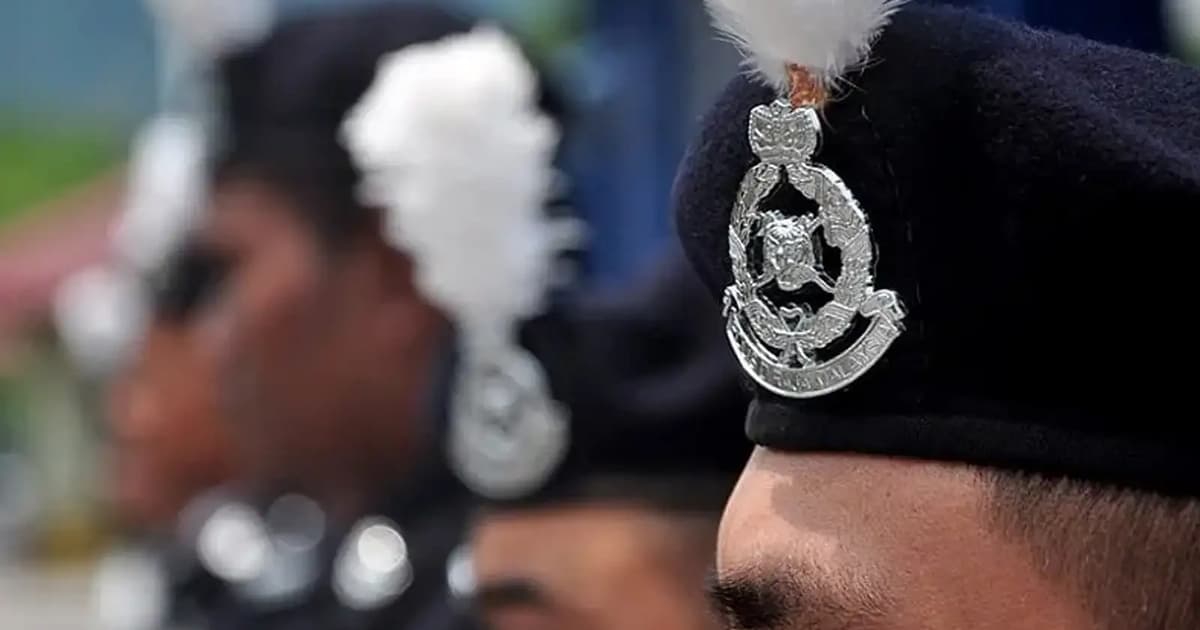
From P Sundramoorthy
The Royal Malaysian Police, Royal Malaysian Customs Department, or branches of the armed forces that bear the “royal” designation often remind us of honour, duty and service to the nation.
This is not merely a bureaucratic label. In Malaysia, the label “royal” signifies a direct association with the Yang diPertuan Agong, and the sovereignty of the nation. It conveys prestige, authority and most importantly, public trust.
That is why when officers from these institutions tasked with upholding the law, safeguarding national security or managing the nation’s revenue are found guilty of corruption or abuse of power, it feels like more than just a violation of the law. It feels like a betrayal of the king and nation itself.
In Malaysia, agencies such as the police, customs and armed forces are designated as “royal” because they operate under the authority of the constitutional monarch. They are not merely state departments; they are embodiments of state power and legitimacy, serving both the government of the day and the enduring institution of the monarchy.
These royal titles come with a sacred trust. Officers in these institutions are not just civil servants; they are guardians of justice, enforcers of national integrity and defenders of the rakyat’s welfare.
That is precisely why, when they exploit their positions for personal gain, their actions go beyond mere criminality. They commit a civic betrayal that strikes at the heart of our national identity.
While such misconduct may not be legally classified as treason, it often undermines the very foundation of our democracy. These officers are sworn to serve the king and uphold the law. When they twist that law for personal enrichment, the damage is profound.
The public rightly asks: why should someone in a position of authority and privilege, uniformed, trained and entrusted with weapons and power receive the same punishment as an ordinary citizen for the same offence?
From criminological and ethical standpoints, there are compelling reasons why corrupt officers in royal institutions should face harsher penalties. They hold public office, not just employment. Their crimes are not just personal failings, but violations of a national covenant. They erode public confidence.
Every instance of corruption weakens trust not only in their own department but in the entire system. The scale of damage is greater.
A civilian’s crime may be limited in scope, but when a police officer takes a bribe, a customs official enables smuggling or a soldier leaks sensitive information, the consequences can be national or even international.
Stricter penalties deter future misconduct. Harsher sentencing can send a clear message, not only to the offender but to others in similar positions that such betrayals will not be tolerated.
This is not a call for show trials or political scapegoating. What Malaysia needs is principled, systemic reform. One step forward would be to introduce aggravating sentencing guidelines for public servants, particularly those in departments designated as “royal”.
This would not contradict the principle of equal justice; rather, it would reflect the principle that with greater authority comes greater responsibility.
But sentencing alone is not enough. Institutional reform must accompany legal reform: stronger oversight mechanisms, enhanced whistleblower protections and insulation from political interference are essential to ensure genuine accountability.
When ordinary citizens break the law, they must face the consequences. But when those entrusted to enforce the law break it, the consequences must be more severe. Their wrongdoing does not just violate rules but also betrays public trust and threatens the very legitimacy of the institutions they represent.
The “royal” title is more than ceremonial. It is a crown of responsibility. And when that crown is tarnished, justice must not be blind. It must be clear-eyed, resolute and unflinching.
As Malaysia recently marked its 68th year of independence and celebrated Malaysia Day on Sept 16, it is more important than ever for institutions bearing the “royal” title such as the Royal Malaysia Police, Royal Malaysian Customs Department and armed forces to rise to a higher standard of ethics, integrity and loyalty.
These milestones are not just symbolic; they are reminders of the nation’s enduring sovereignty, hard-won unity and constitutional monarchy.
In honouring our king and the legacy of Merdeka, there must be zero tolerance for corruption or misconduct within royal institutions.
Law enforcement and military personnel must embody the highest levels of professionalism, patriotism and dignity. There can be no room for those who would tarnish the nation’s name or compromise the people’s trust.
Malaysia must always be served with honour, protected with integrity and defended by those who are worthy of bearing the “royal” title.
P Sundramoorthy is a criminologist at the Centre for Policy Research in Universiti Sains Malaysia. He is also an FMT reader.
The views expressed are those of the writer and do not necessarily reflect those of FMT.






